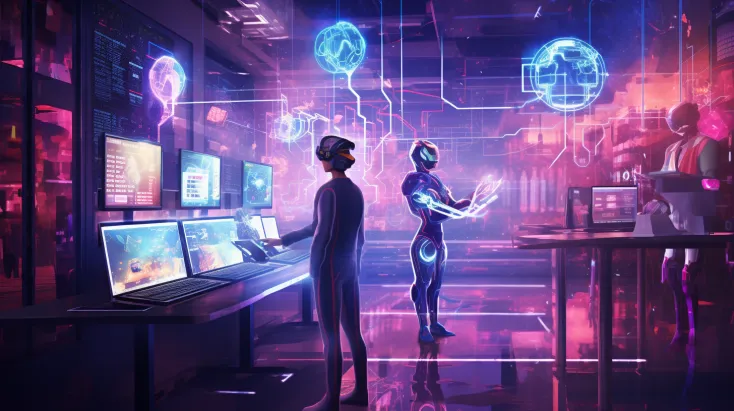Table of Contents
OpenAI, the trailblazing organization in the realm of artificial intelligence, had previously announced plans to launch the highly anticipated GPT Store, a marketplace designed to offer diverse and customizable AI models. However, recent developments within the company have led to a significant setback. Amidst a wave of leadership turmoil, OpenAI has made the tough decision to postpone the launch of the GPT Store until 2024.
The Genesis of the GPT Store: OpenAI’s Revolutionary Concept
The inception of the GPT Store promised to revolutionize the accessibility and utilization of AI models. OpenAI, known for its groundbreaking work in AI research and development, intended to create a platform where businesses, developers, and innovators could access, purchase, and even tailor AI models according to their specific needs. The concept generated immense excitement within tech communities worldwide, with expectations high for the transformative potential it held.
Unforeseen Leadership Chaos: The Unraveling of Plans
The sudden upheaval in OpenAI’s leadership, characterized by key resignations and internal disagreements, significantly disrupted the organization’s strategic plans. A series of unforeseen events, including disagreements over the direction of the GPT Store and internal power struggles, culminated in a chaotic atmosphere within the company.
Prominent figures within OpenAI, who had been instrumental in spearheading the GPT Store initiative, departed from their roles, citing differences in vision and strategic priorities. This vacuum at the upper echelons of leadership cast a shadow over the project’s future and compelled OpenAI to reevaluate its roadmap.

Repercussions and the Decision to Postpone
The fallout from the leadership turmoil reverberated throughout OpenAI, impacting ongoing projects, including the development and launch of the GPT Store. The organization found itself grappling with critical decisions amid the uncertainty created by the leadership vacuum.
In light of these internal challenges, OpenAI faced the harsh reality that the originally envisioned timeline for the GPT Store was no longer viable. The decision to delay the launch until 2024 was reached after careful consideration of the need to address internal restructuring, rebuild team cohesion, and realign strategic objectives.
Impact on Stakeholders and Industry Expectations
The delay in the GPT Store launch reverberated across various stakeholders, from AI enthusiasts to businesses eagerly anticipating the platform’s offerings. Developers and enterprises relying on advanced AI models expressed disappointment, as the postponement disrupted their plans for leveraging cutting-edge technology to drive innovation and growth.
Moreover, industry watchers who had been closely monitoring OpenAI’s developments saw the delay as a setback to the broader AI ecosystem. The GPT Store had been anticipated as a milestone in democratizing AI access, and its postponement raises questions about the pace of progress and challenges within the AI landscape.
Path Forward: Navigating Challenges and Restoring Confidence
As OpenAI navigates through this period of instability, restoring confidence and realigning organizational priorities emerge as crucial objectives. The company has emphasized its commitment to re-establishing a solid leadership foundation, fostering internal cohesion, and streamlining its vision for the GPT Store.
While the delay is undoubtedly disappointing, OpenAI aims to utilize this extended timeline judiciously. The organization intends to leverage the additional time to fine-tune the platform, enhance AI models, and reinforce the infrastructure necessary for a seamless and impactful launch in 2024.
Looking Ahead: Anticipating a Resilient Future
Despite the challenges posed by the leadership turmoil and subsequent postponement, OpenAI remains resolute in its mission to advance AI for the betterment of society. The delay represents a temporary setback rather than a definitive roadblock in the company’s trajectory.
With a renewed focus on internal stability, strategic clarity, and meticulous preparation, OpenAI is determined to emerge stronger and more resilient. The extra time afforded by the delay will be harnessed to deliver a GPT Store that exceeds expectations, empowering individuals and businesses with unparalleled AI capabilities when it finally launches in 2024.
In conclusion, while the postponement of the setback for OpenAI and the AI community at large, it signifies a pivotal moment for the organization to regroup, fortify its foundations, and ultimately deliver a transformative AI marketplace that lives up to its promise.